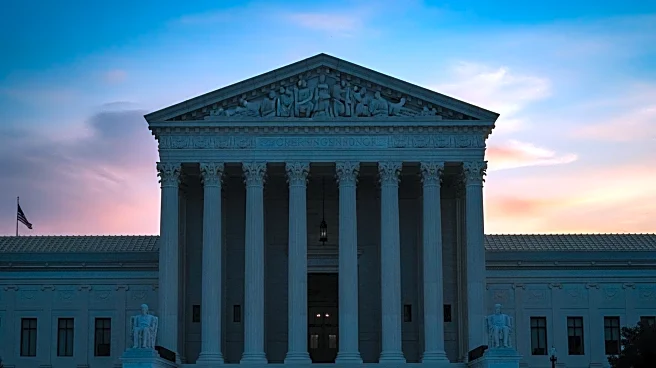What's Happening?
The Supreme Court has wrapped up arguments in a case concerning Louisiana's congressional map, which could have implications for the Voting Rights Act. The case involves a dispute over whether the map unfairly
dilutes the voting power of minority groups. Legal experts and advocates are closely watching the proceedings, as the decision could affect how congressional districts are drawn in the future, potentially impacting minority representation in Congress.
Why It's Important?
The outcome of this case is significant as it could set a precedent for how congressional maps are evaluated under the Voting Rights Act. A decision favoring the challengers could lead to more equitable representation for minority groups, ensuring their voting power is not diminished. Conversely, a ruling upholding the current map could reinforce existing districting practices, potentially affecting minority representation in legislative bodies. The case highlights ongoing debates about gerrymandering and the balance between state control and federal oversight in electoral processes.
What's Next?
The Supreme Court's decision is awaited, which will determine the legality of Louisiana's congressional map. Depending on the ruling, there may be calls for redrawing the map to better reflect minority voting strength. Stakeholders, including civil rights organizations and political parties, are likely to respond to the decision, potentially leading to further legal challenges or legislative action. The case could also influence similar disputes in other states, shaping the national conversation on voting rights and districting.









